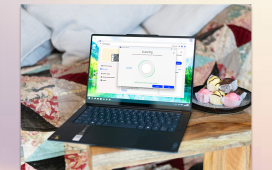The latest Microsoft security breach highlights the ongoing cyber threats faced by tech giants in a startling revelation. The breach, orchestrated by a group identified as Midnight Blizzard, also known as APT29 or Cozy Bear, believed to be backed by the Russian government, targeted specific Microsoft corporate email accounts.
Microsoft security breach happened with a password spray attack
This Microsoft security breach is unique in its nature. Instead of pursuing customer data or typical corporate information, the hackers focused on accounts belonging to Microsoft’s top executives and employees in key departments like cybersecurity and legal. Their objective wasn’t to steal customer information but to gain insight into what Microsoft, a leader in tech security, knew about them.
The incident underscores the intricate nature of cyber warfare, where knowledge about an adversary’s strategies and insights becomes as valuable as traditional data theft. This Microsoft security breach not only exposes the vulnerabilities of even the most sophisticated tech entities but also the evolving motives and tactics of state-sponsored hacking groups.

“The investigation indicates they were initially targeting email accounts for information related to Midnight Blizzard itself,” the company stated in a blog post.
In the wake of the recent Microsoft security breach, the company disclosed that the hackers employed a “password spray attack” technique. This method, which involves brute-forcing to crack passwords, was used against a legacy account. Once inside, the hackers utilized this account’s permissions to access a small portion of Microsoft’s corporate email accounts.
The specific details of the Microsoft security breach, including the exact number of compromised accounts and the extent of information accessed, remain undisclosed by Microsoft. As of now, the company has not provided additional comments on the breach.
Microsoft took advantage of news of this hack to talk about how they are going to move forward to make itself more secure.

“For Microsoft, this incident has highlighted the urgent need to move even faster. We will act immediately to apply our current security standards to Microsoft-owned legacy systems and internal business processes, even when these changes might cause disruption to existing business processes. This will likely cause some level of disruption while we adapt to this new reality, but this is a necessary step, and only the first of several we will be taking to embrace this philosophy,” the company stated.
APT29, also known as Cozy Bear, the group behind the Microsoft security breach, is a well-known Russian hacking entity. They have been implicated in several high-profile cyberattacks, including the SolarWinds breach in 2019, the Democratic National Committee hack in 2015, and other significant incidents.
Understanding the meaning of data breach in 4 steps
Broader implications of security breaches
The Microsoft security breach orchestrated by APT29 not only raises immediate concerns for the tech giant but also casts a spotlight on broader cybersecurity challenges facing the industry.

This incident underscores a critical aspect often overlooked by many tech companies: the vulnerability of legacy systems.
- Reevaluating cybersecurity strategies: In the aftermath of security breaches, there’s an industry-wide call to reevaluate current cybersecurity strategies. Companies are now recognizing the need for a proactive approach, moving beyond traditional defensive mechanisms to more advanced, predictive models of cybersecurity.
- The legacy system dilemma: Legacy systems, often integral to the operations of many organizations, pose a significant security risk. This incident exemplifies how older systems can become the weakest link in the security chain, offering an entry point for sophisticated cyberattacks.
- Urgency for modernization: There’s an increased urgency for companies to modernize their legacy systems. The Microsoft security breach serves as a stark reminder that updating and securing these systems is not just a matter of operational efficiency but a critical necessity for security.
- Balancing business and security needs: As Microsoft’s response to the security breach indicates, implementing stringent security measures can disrupt existing business processes. Companies must balance the need to secure their systems with the need to maintain operational continuity.
- Wider implications for the tech industry: There’s a growing trend of state-sponsored cyberattacks. This shifts the focus of cybersecurity from not only guarding against individual hackers but also preparing for sophisticated, coordinated attacks by nation-state actors.
- International collaboration and policies: This incident may encourage greater international collaboration and development of policies to combat such cyber threats. The nature of the Microsoft security breach suggests that cybersecurity is not just a corporate issue but also a matter of national and international security.
Featured image credit: Kerem Gülen/Midjourney











